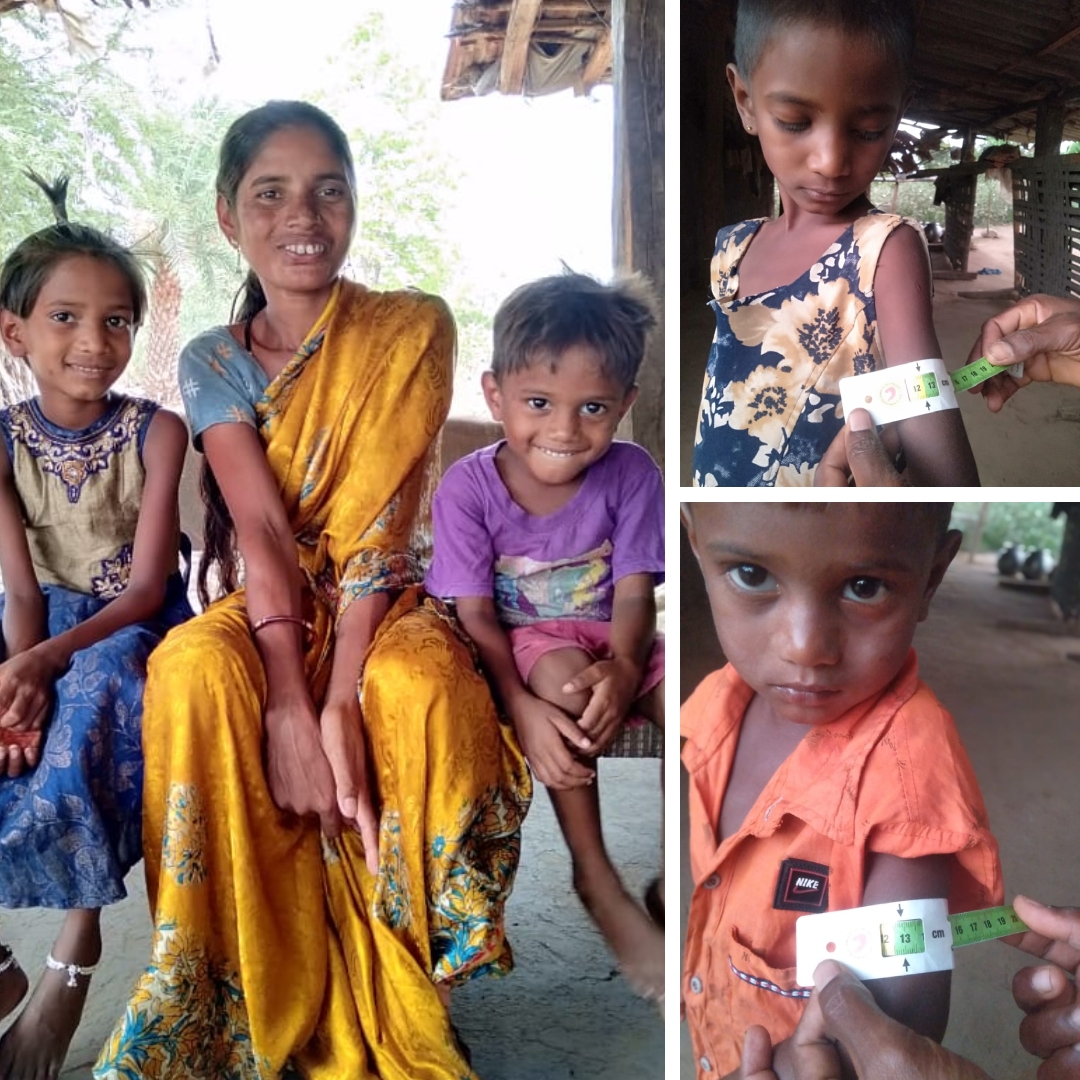
Image Credit: Save the Children
Malnourished Siblings In Telangana Settlement Lead Healthy Lives With Sustained Support
Writer: Save the Children
Save the Children is India’s leading independent child rights’ NGO, which works in 18 states of the country. Beginning its journey in 2008 in India, and registered as ‘Bal Raksha Bharat’, we have changed the lives of more than 11 million (1.1 crore) children.
Telangana, 31 July 2022 10:51 AM GMT | Updated 17 Aug 2022 1:13 PM GMT
Creatives : Ankita Singh |
A literature lover who likes delving deeper into a wide range of societal issues and expresses her opinions about the same. Keeps looking for best-read recommendations while enjoying her coffee and tea.
Guest Author : Save the Children
Save the Children is India’s leading independent child rights’ NGO, which works in 18 states of the country. Beginning its journey in 2008 in India, and registered as ‘Bal Raksha Bharat’, we have changed the lives of more than 11 million (1.1 crore) children.
"My children would fall sick frequently. They kept coughing and suffering from fever. I didn't know what was wrong with them, so I decided to consult the local healer. But my children did not get well," said Deepthi.
Deepthi, 30, lives with her husband and four children in Shanthi Nagar, a settlement for Internally Displaced People in Telangana's Mulugu district. The settlement has 23 families and is 8km away from the Mangapet village Mandal. During the COVID-19 pandemic, Deepthi's family struggled with food provisions and went hungry on most days as their income depended on daily labour. The lockdowns stopped her husband from going outside to find work. As a result, her two children, Reena and Ravi, were identified under moderate acute malnutrition.
The families in the settlement are poor, and their survival depends on daily labour. Lack of accessibility and poor knowledge of health services force mothers to consult self-proclaimed healers. Deepthi avoided going to the Anganwadi centre as that would mean a good 8km walk. "My children would fall sick frequently. They kept coughing and suffering from fever. I didn't know what was wrong with them, so I consulted the local healer. But my children did not get well," said Deepthi.
Providing Ration Kits To Families
Save the Children has been working in IDP settlements giving food security to the families, promoting education through child-friendly learning spaces and supporting the adults in the families with skill development and training. The on-ground team linked Deepthi's family to the nearest Anganwadi centre so that they were eligible for take-home rations. The family was provided food kits for four months, including rice, oil, chikki, Horlicks bottles, sugar and spices.
They registered the family with the Primary Health Centre for medical support. They ensured that the Auxiliary Nursing Midwifery worker visited them every fortnight to follow up on routine immunisations, supplement intake and other essential health services.
Ravi is four years old, and Reena is eight. Both the kids are healthy now. The worst is behind them.
Leading By Example In Remote Regions
Musakki. Nisha, 11, is the first girl in her settlement in Chintalamori of Mulugu district to attend school. Her parents were never educated and worked as daily wage labourers. Being a part of the IDP settlement, Nisha started her pre-primary education at Save the Children's Child-Friendly Learning Centres since regular school and Anganwadi was inaccessible.
She joined the tribal welfare school in Tadvai in 2019 in Class 3. Her education was disrupted due to the pandemic, but she is now back in the residential school, studying in Class 5. She wants to become a teacher. She has become an inspiration to other children in the settlement, and she has motivated 10 girls to join the same ashram school.
Also Read: Gujarat Hooch Tragedy: Death Toll Reaches 40, AAP Workers Detained For Staging Protest In Delhi
 All section
All section















